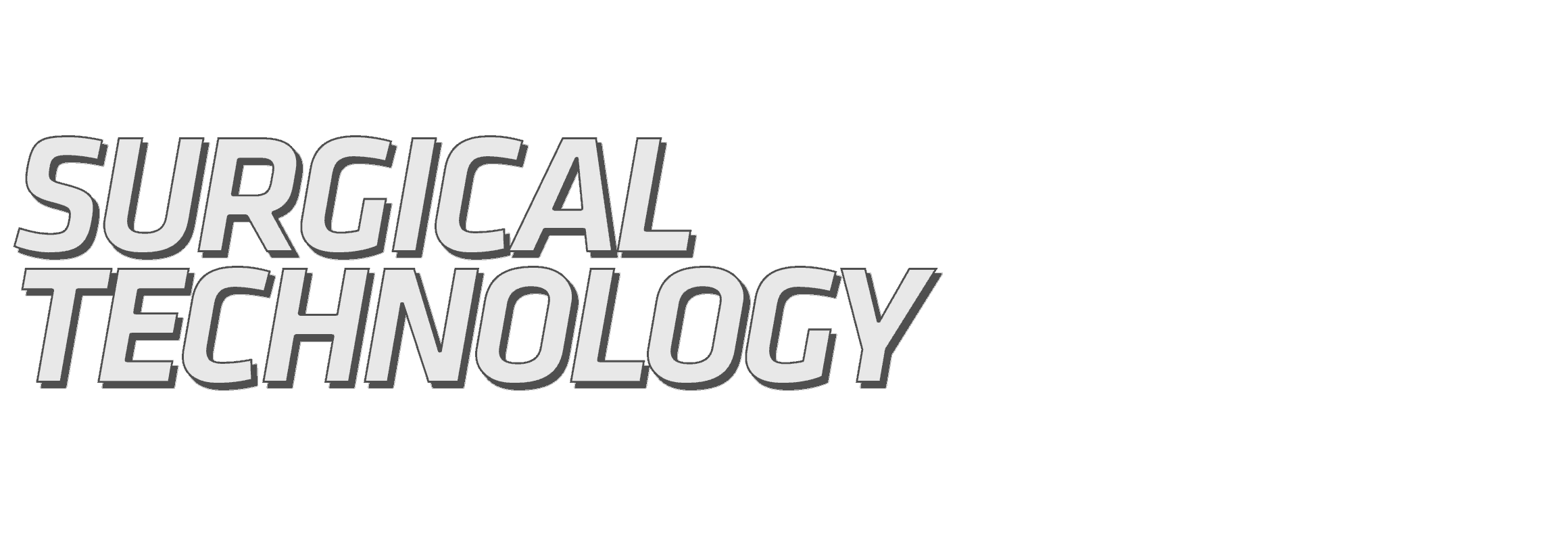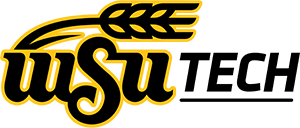
Surgical Technology Program Features
The Surgical Technology program prepares students to function in the operating room environment by combining classroom and simulated laboratory Instruction with actual surgical clinical experiences. Successful completion of the program allows graduates to take the national certification examination to become a certified surgical technologist (CST). Students may request consideration for advanced placement by submitting an official transcript of coursework. This program does not offer credit for experiential learning. The Associate of Applied Science degree is typically a 2-year program that Includes all prerequisite, general education, and program coursework. As a condition of participation In SGT119 Clinical I and SGT129 Clinical II, students do not receive any compensation from WSU Tech or the clinical affiliate. Students assist physicians during surgical procedures, but at no time are they substituted for a health care facility staff members.
The WSU Tech Surgical Technology program is aligned with the National Center for Education Statistics CIP code 51.0909: Surgical Technology/Technologist prepares individuals, under the supervision of physicians and surgical nurses, to maintain, monitor, and enforce the sterile field and adherence to aseptic technique by preoperative, surgical team, and postoperative personnel. Includes instruction in instrument and equipment sterilization and handling, surgical supplies management, wound exposure and closure, surgical computer and robot operation and monitoring, maintenance of hemostasis, and patient and team scrubbing.
Students that became Certified Surgical Technologist through the NBSTSA (National Board of Surgical Technology and Surgical Assisting)
Certification Pass Rates (pass rate on first attempt):
2017-2018 – 100%
2018-2019 – 85%
2019-2020 – 81% – Average
May – 82%
October – 88%
2020-2021 – 81% – Average
May – 88%
October – 75%
Graduate employment rate:
2017-2018 – 100%
2019 – 100%
2020 – 98%
2021 – 100%
Degree and Certificate Options
| Associate of Applied Science, Surgical Technology | 65 Credit Hours |
Accreditation
WSU Tech is accredited by the Higher Learning Commission.
The Higher Learning Commission
230 South LaSalle Street, Suite 7-500 • Chicago, IL 60604
https://www.hlcommission.org/ • 800.621.7440
Students interested in this program are eligible to apply for federal financial aid.
The Surgical Technology program is accredited by the Commission on Accreditation of Allied Health Education Programs upon the recommendation of the Accreditation Review Council on Education in Surgical Technology and Surgical Assisting (ARC/STSA)
Commission on Accreditation of Allied Health Education Programs
CAAHEP HAS MOVED – THE NEW ADDRESS IS:
9355 113th St N, #7709
Seminole, FL 33775
727-210-2350
Commission on Accreditation
of Allied Health Education Programs
CAAHEP HAS MOVED – THE NEW ADDRESS IS:
9355 113th St N, #7709
Seminole, FL 33775
Accreditation Review Council on Education in Surgical Technology and Surgical Assisting ARC/STSA
19751 E Mainstreet, Suite 339
Parker, CO 80138
Phone: 303-694-9262
Fax: 303-741-3655
info@arcstsa.org
The goal of the WSU Tech’s Surgical Technology program is to prepare competent entry-level surgical technologists in the cognitive (knowledge), psychomotor (skills), and affective (behavior) learning domains.
Upon successful program completion, the Surgical Technology graduate will:
Psychomotor: During Principles and Practices Lab-SGT140, Surgical Procedures I SGT115, and Surgical Procedures II SGT125, incorporate the fundamentals learned during didactic instruction as students practice the motor skills associated with operating room competencies.
Affective: Students learn to apply critical thinking skills using knowledge learned during basic biological didactic courses as the basis for decision making during the performance of operating room procedures.
Cognitive: Students are introduced to the concepts of professionalism, ethics, and values during the 1st semester in Introduction to Surgical Technology SGT101. This course introduces the role and functions of proper documentation, post and preoperative case management, professional and self-management, professionalism, and work place management, scope of practice, patient care standards, death and dying issues, legal and ethics dilemma, risk management and safety, basic computer skills and electricity concepts.
Psychomotor: Students practice and are assessed for their application of professional attributes in the classroom, laboratory, and clinical rotations
Affective: The concepts of professionalism are taught throughout the program to guide student behavior in the profession of surgical technology. Interactive assignments where students discuss the challenge of each other facilitate students’ understanding of their own frame of reference, enabling students to understand how their cultural and ethical mindset impacts their interactions with patients and the surgical team.
Cognitive: Students will define surgical conscience and discover its relationship to the use of universal precautions, principals of asepsis and sterilization techniques in the surgical setting.
Psychomotor: Students will consistently perform clinical skills in the surgical setting utilizing universal precautions, principals of asepsis and sterilization techniques.
Affective: Students surgical conscience will guide decision making to provide a safe environment for patients and members of the surgical team4.
Cognitive: Students will classify drugs used in the surgical setting
Psychomotor: Students will safely distribute medications to the surgeon and apply dressings at the end of the surgical procedure.
Affective: Students’ awareness will prompt verification of medications and apply dressings needed at the end of the surgical procedure
Cognitive: Students will identify types of wound healing
Psychomotor: Students will apply dressings at the end of surgical procedures
Affective: Students’ awareness will prompt verification of physician’s orders and apply dressings needed at the end of the surgical procedure.
Cognitive: Students are introduced to the concepts of surgical conscience, accountability and legal implications of personal actions in SGT101 and the concepts are reinforced in every course throughout the program.
Psychomotor: Students practice and are assessed for their application of surgical conscience and accountability in the classroom, skills lab, and clinical rotations. Legal concepts, such as charting and compliance with confidentiality, are assessed in skills laboratory simulations and during clinical rotations.
Affective: The concepts of surgical conscience, accountability, and legal implications are taught in the beginning of the program in SGT101 Introduction to Surgical Technology, to guide the student thru the program.
Cognitive: Surgical Technology courses at WSU Tech are designed to provide students with the theoretical basis to prepare for and assist with surgical interventions. Knowledge gained is sequential, progressing from theoretical material to the application of complex skills.
Psychomotor: During Principles and Practice Lab SGT 140, Surgical Procedures I SGT107, and Surgical Procedures II SGT___, students apply the theoretical surgical technology concepts in the performance of surgical technology competencies.
Affective: Knowledge gained in Surgical Technology courses prepare students for the emotional challenges that may be encountered before, during and after surgical interventions.
Cognitive: Surgical Technology laboratory and clinical courses are designed to provide students with practical skills to prepare for and assist with surgical interventions. Knowledge gained in sequential, progressing from the simple to the complex, enabling students to evolve from simple comprehension of theoretical material to application of complex skills.
Psychomotor: During laboratory courses and clinical rotations, retain theoretical progressively apply skills in the performance of surgical interventions.
Affective: Knowledge gained in SGT laboratory and clinical courses prepare students for entry-level practice as a surgical technician.
Cognitive: Students will review theory courses
Psychomotor: Students will practice assisting with surgical procedures
Affective: Students will value the knowledge and skills acquired to obtain a position as a Surgical Technologist.



 ] Weather Update: WSU Tech campuses remain open Friday, January 10th. Please use caution on sidewalks and parking lots.
] Weather Update: WSU Tech campuses remain open Friday, January 10th. Please use caution on sidewalks and parking lots.  ] Ready to enroll? Call us today or visit wsutech.edu/contact. Stay safe and stay warm!
] Ready to enroll? Call us today or visit wsutech.edu/contact. Stay safe and stay warm!